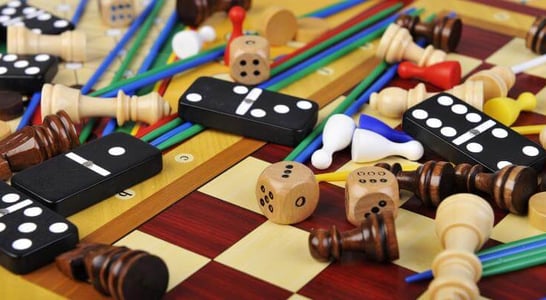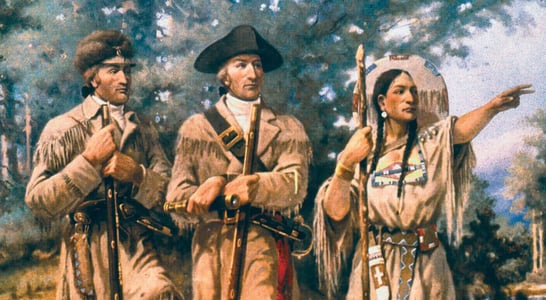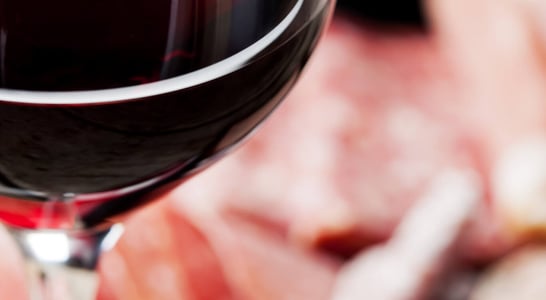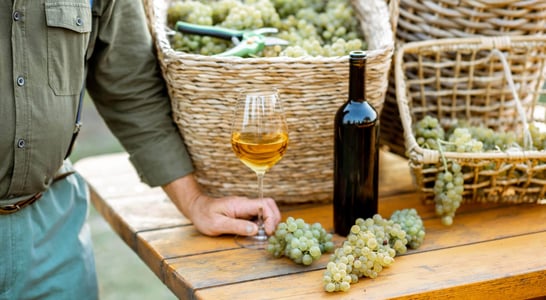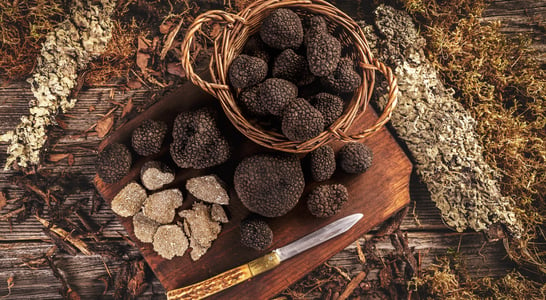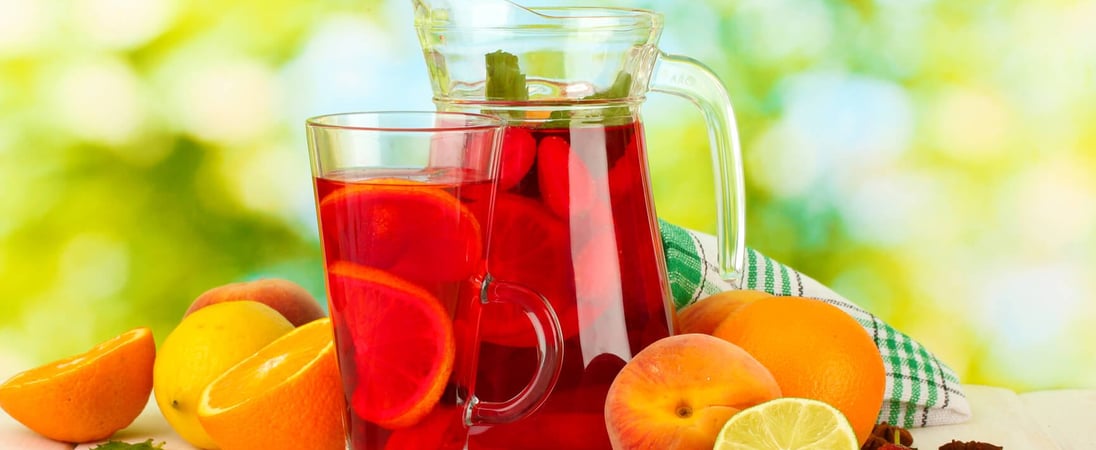
National Sangria Day
Take a siesta to sip Spanish and Portuguese punch made with wine and sweeteners and flavored with fruits like berries, oranges and mangos.
It’s hard to think of many things that could be better than a day dedicated to wine!
National Sangria Day is the perfect excuse to meet with friends and sample the delicious, fruity drink that is one of Spain’s claims to fame in the area of the culinary arts.
Make sure that this National Sangria Day really packs a punch this year with celebrations, friends, and loads of fun.
History of National Sangria Day
Each year, more and more people are visiting Spain for its rich heritage and culture of food.
Over 2,000 years ago, when the Romans inhabited the area, they knew the water there was unsafe for drinking because of bacteria, and so it was common to fortify it with alcohol to kill it off. In this case, necessity became the mother of invention, and many people’s lives are all the better for it.
The first sangrias (whose name comes from Sangre, or blood, and refers to its dark red color) were likely heavily watered down mixes of wine and water, as well as herbs and spices.
Basically, the Romans added anything they could to kill off the bacteria in the water and to disguise the taste of mediocre table wine.
Wine-making and, thus, sangria-making flourished for some time in Spain. Then, during the 700s, the Spanish wine industry floundered when the Islamic Moors took over.
It wasn’t until almost 800 years later, when the Moors were conquered) that Spaniards were again able to freely enjoy their sangria-making activities again.
By the 18th and 19th centuries, Sangria became popular in England and France, using French grapes. Then, in 1964, with the influence of the New York City World’s Fair, Sangria was introduced to the wider population in the United States and the Americans have had a taste for it ever since.
Expressions of Sangria have tended to change over time. Variations usually center around the type of fruit, the presence or lack of carbonation and the kind of spirits added if any at all.
While all fruits can be used, the key is to use fruit that’s in season in order to underline the flavor of the drink, and also the type of wine being used.
Today, by European law, in order to be given the label “Sangria”, the drink must be made in either Spain or Portugal and be low in alcohol–less than 12% by volume.
Sangria has become an ancient and much-loved tradition. And, even though it originates in Spain and Portugal, it is certainly enjoyed worldwide today.
It can be served as an iced outdoor treat in the summer, or as a great way to warm up indoors in the winter.
How to Celebrate National Sangria Day
Celebrations for National Sangria Day are pretty straightforward: gather some friends, pour everyone a glass, then kick back and enjoy the true taste of summer (even if it happens to be winter in the northern hemisphere)! Other ideas for celebrating the day include:
Enjoy a Glass of Sangria
While it might need to be made in Spain or Portugal to officially have the name “sangria”, that doesn’t mean the spirit of this drink can’t be enjoyed elsewhere!
Try ordering it at a Mexican restaurant, picking some up at a local liquor store, or even making your own. It’s a great drink to pair with seafood dishes, Thai, spicy Mexican food or even with a plate of cheese.
Sangria is great because it is fairly cheap, certainly fruity and definitely delicious!
Try a Hand at Making Sangria
There are practically as many recipes for sangria as there are drinkers of the fruity punch, and a lot of delightful sangria recipes you should try. But the most common ingredients for almost any sangria are wine, fruit, honey, and sugar.
The recipe can be adjusted to suit any taste, however: sparkling water can be added to give the drink more fizz, and fruit can be kept out of the glasses using a strainer.
Some of the fruit can even be mashed or grated and then stirred into the wine to give it an extra-rich flavor.
So while citrus and berries are the most popular choices for sangria, also consider peach, pineapple, mango, melon, and even apples. If possible, try to let the fruit marinate in the wine a day ahead, or at least a few hours before serving, to get the most of the natural flavors the fruits add.
Brandy is also commonly used in sangria to jack the alcohol content up a little, but you can add a few shots of your favorite liquor instead, or a splash of orange juice combined with a liqueur such as Triple Sec.
For those who would like to add bubbles, consider soda water or citrus-flavored soda pop (Spaniards would probably have heart attacks if they knew how you were perverting their drink with Sprite, but what they don’t know doesn’t hurt them).
Some sangria lovers add honey or sugar as well.
While connoisseurs say it’s important to use a good quality red wine such as Rioja to get the authentic Spanish flavor, many agree that you should just choose something you like.
Inexpensive wines are perfect for this drink–after all, masking the taste of cheap wine is exactly how sangria came into existence in the first place!
Make a National Sangria Day Playlist
Wondering which tunes are best to enjoy while drinking that sangria? Create a fun playlist on Spotify or another music hosting website that will help enjoy the fun and fiesta of the day.
Get started with these songs, and then add a few more favorites to round it out:
- Sangria by Blake Shelton (2015). Country music lovers will appreciate this song by this famous singer/songwriter who is married to Gwen Stefani.
- Sangria Wine by Jerry Jeff Walker (1973). Head back a few years to this folk, laid-back song that sounds like it was recorded on a back porch while drinking a pitcher of Sangria!
- Red Sangria by Jordin Sparks (2020). A more recent release, this one features this pop star who won American Idol as a teenager–and now she’s proving she’s still relevant at over 30 years old.
- Sangria Wine by Pharrell Williams and Camila Cabello (2018). Depending on the type of party it is, this one might not make it onto the playlist (if grandma is on the guest list), but the tune certainly has a low-key, sangria-drinking vibe. Even if the lyrics do have a double meaning.
National Sangria Day FAQs
Did the Romans influence the creation of Sangria?
Yes, over 2,000 years ago, Romans in the Iberian Peninsula mixed wine with water and herbs to purify unsafe drinking water. This practice is considered an early form of Sangria.
What is the origin of the word ‘Sangria’?
The term ‘Sangria’ comes from the Spanish word ‘sangre,’ meaning blood, referring to its deep red color.
Is Sangria always made with red wine?
No, while traditional Sangria uses red wine, variations like ‘Sangria Blanca’ use white wine, especially in regions like Catalonia.
How did Sangria gain popularity in the United States?
Sangria was introduced to the U.S. at the 1964 World’s Fair in New York, where it was served at the Spanish Pavilion, sparking widespread interest.
Are there legal regulations for labeling Sangria in Europe?
Yes, since 2014, the EU restricts the label ‘Sangria’ to products made in Spain and Portugal. Other regions must specify their origin, like ‘German Sangria.’
What is ‘Clericó,’ and how does it relate to Sangria?
Clericó is a similar beverage popular in Latin America, made with white wine and tropical fruits, akin to Sangria Blanca.
Is Sangria a common drink among locals in Spain?
Contrary to popular belief, Sangria is more popular among tourists in Spain; locals prefer drinks like ‘Tinto de Verano.’
What is the connection between Sangria and ‘Limonada de Vino’ in León, Spain?
In León, a similar drink called ‘Limonada de Vino’ is made with wine, citrus fruits, sugar, and spices, traditionally consumed during Holy Week.
Did Sangria have a predecessor in the Caribbean?
Yes, ‘Sangaree,’ a similar punch served hot or cold, originated in the Caribbean and was introduced to mainland America during the colonial era.
Can Sangria be non-alcoholic?
Yes, a non-alcoholic version called ‘Ponche de Sangria’ is made for children, using fruits and soft drinks to mimic the appearance and taste of traditional Sangria.
Also on ...
View all holidaysGo Caroling Day
Strolling through the neighborhood, singing cheerful tunes, and spreading holiday joy with friends and family — a heartwarming tradition.
Games Day
Enter a world of endless fun and adventure where strategy, skill, and luck come together in thrilling challenges and exciting competition.

